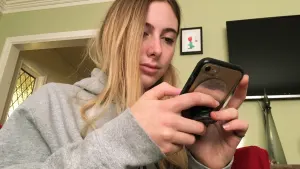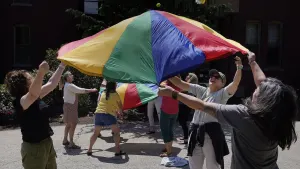More Stories
This morning, the European Union has just issued a new recommendation that all 27 of its member countries should discourage all nonessential travel to and from the United Kingdom until further notice.
Residents are being told to stay home, as a new, more contagious strain of the coronavirus has been discovered in the U.K.
Will it spread here to the U.S. soon, or is it already here? And will the two COVID-19 vaccines being rolled out now work to protect us against it?
News 12's Danielle Campbell was joined by Dr. Sharon Nachman to answer viewer questions. Dr. Nachman is the head of the division of pediatric infectious diseases at Stony Brook Children's Hospital.
BioNTech's CEO says he is confident their vaccine, developed with Pfizer, will work against that new strain of COVID-19, because "the proteins on the variant are 99% the same as the prevailing strains."
Below is what Dr. Nachman had to say about this new strain of the virus and how vaccines will work:
The new strain is reported to be more contagious, do we know how it is spread? And how do we stop it? Dr. Nachman answers:
A new report this morning shows cases of COVID-19 in children are rising. The American Academy of Pediatrics says they've gone up 25% over the last two weeks. Last week, there were more than 182,000 new cases. That's the highest weekly increase since the beginning of the pandemic. So far, 1.8 million children have tested positive for COVID-19.
Dr. Nachman talks about the increase and severe cases in children:
What about this upcoming school break, should children avoid gatherings? Can our kids visit grandma? Is it safe for children to get together with other children in their class, that they are with all the time? Below is what Dr. Nachman has to say about gatherings:
When will the vaccine be offered to our kids? This is Dr. Nachman's estimate:
Scientists are taking new steps to figure out why some people are having allergic reactions to Pfizer's coronavirus vaccine. Researchers with the National Institutes of Health are starting a new study. They're recruiting volunteers with a history of severe allergic reactions. They hope to have an answer in a few weeks.
Dr. Nachman discusses the allergic reactions and the vaccine studies:
More from News 12
1:28

5 simple steps for long-term benefits to your health and heart
1:32

8 tips for working safely during hot weather
3:31

Guide: Ways to set your child up for financial success
3:18

Guide: The importance of good sleep and how to get it

Guide: Mental health resources available in the tri-state
9:36
